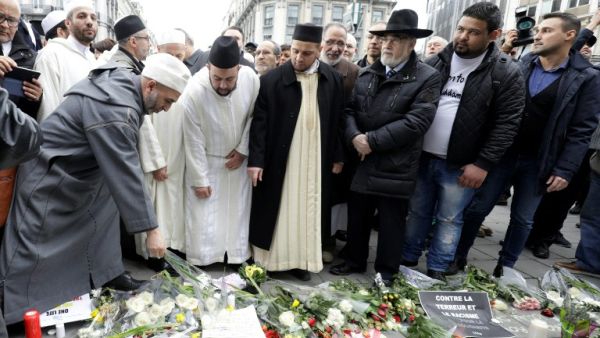Molenbeek shot to fame in the aftermath of two major extremist attacks in Europe: Paris in November 2015 and, four months later, Brussels.
After perpetrators in both attacks were linked to the now much-maligned neighborhood in the western part of the city, a period of soul-searching began in Belgian politics, to understand how Molenbeek became a "retreat base for jihadists," as one Belgian lawmaker put it.
But, one year on, after the deadliest terrorist attack in Belgium's history, observers are warning that the lessons have not been learned.
"I feel a little deceived. The first thing that should have been addressed here is education," says 70-year old Johan Leman, an academic, who has lived in Molenbeek since 1981 and runs a regional minority centre there.
"Everyone knows that there is a big problem with schooling here, yet I have heard nothing about that from the government,” says Leman, who has observed the comings and goings in Molenbeek during an extended period of time.
His academic research has focused on religion, migration and integration policies. For a period of time, he also served in the federal government, focusing on migrant policies and equal opportunities.
Leman says that, for decades, the Belgian government turned a blind eye to developments in Molenbeek, even when Islamic State (Daesh) was already recruiting there for people to fight in Syria and Iraq.
"When recruitment began in 2012, Molenbeek had already become a place where different strands of jihadist influences came together, since the 90s."
"There was very successful and strategic IS recruitment here, they were looking very clearly for unsuccessful criminals, drug dealers, people who knew how to find arms and how to hide themselves. Also for young men who identified with a ‘loser’ mentality," he said, using a common acronym for the group.
Following the bombings in Paris and Brussels, the Belgian authorities were heavily criticized for their lax approach to the problem of home-grown radicalization.
The authorities responded by: introducing measures making it easier to preventively detain terrorism suspects, making stronger penalties for abetting terrorism; and isolating all criminals with terrorism ties for up to 23 hours a day.
But, like Leman, Pieter van Ostayen - an academic at the University of Leuven who has been monitoring the recruitment of Belgian foreign fighters by extremist groups such as Islamic State - is not convinced that the measures suffice to solve the problem.
"Most of the measures are of a repressive nature and, in general, a long-term approach is needed that includes investment in housing, cleaning the neighbourhood, education and an integration policy," says Ostayen.
“Belgians who joined the Islamic State speak of social exclusion, headscarf bans, the lack of jobs and feeling like second- or even third-class citizens. There seems to be a common feeling that they don’t belong anywhere, neither in Morocco nor in Belgium. At the same time, one of the most important narratives within the Islamic state is the feeling of belonging and brotherhood.”
While the Belgian government and Molenbeek's administration might have been quick to condemn Molenbeek - but slow to come up with a more structural approach - 35-year old Ibrahim Ouassari, a Molenbeek native and technology entrepreneur, decided to take matters in his neighborhood into his own hands.
Ouassari says he was frustrated with the feeling of not really belonging to Belgium, nor his parents' native Morocco. He dropped out of school at 13, and was drifting. A few years later, however, he managed to turn his life around, by teaching himself how to code and successfully launching his own company.
Now an entrepreneur with four tech-focused businesses, he has set up a coding school named Molengeek, to reach out to young people in the neighbourhood. The coding school is based in a local co-working space with bright graffiti on the wall and free-flowing coffee in the kitchen.
"Technology gave me a lot of opportunities and perspective," says Ouassari.
"Just because you are a loser at school, it doesn't mean you have to be a loser in life. I want to be a role model for young people here - Belgian society needs positive role models from here who are called Ismael or Marwan."
Johan Leman agrees.
"My advice to policy makers is to be creative. Otherwise the danger is that as Belgian IS fighters return, they will be able to exploit frustrations and the lack of a positive narrative, and continue their recruitment here."








